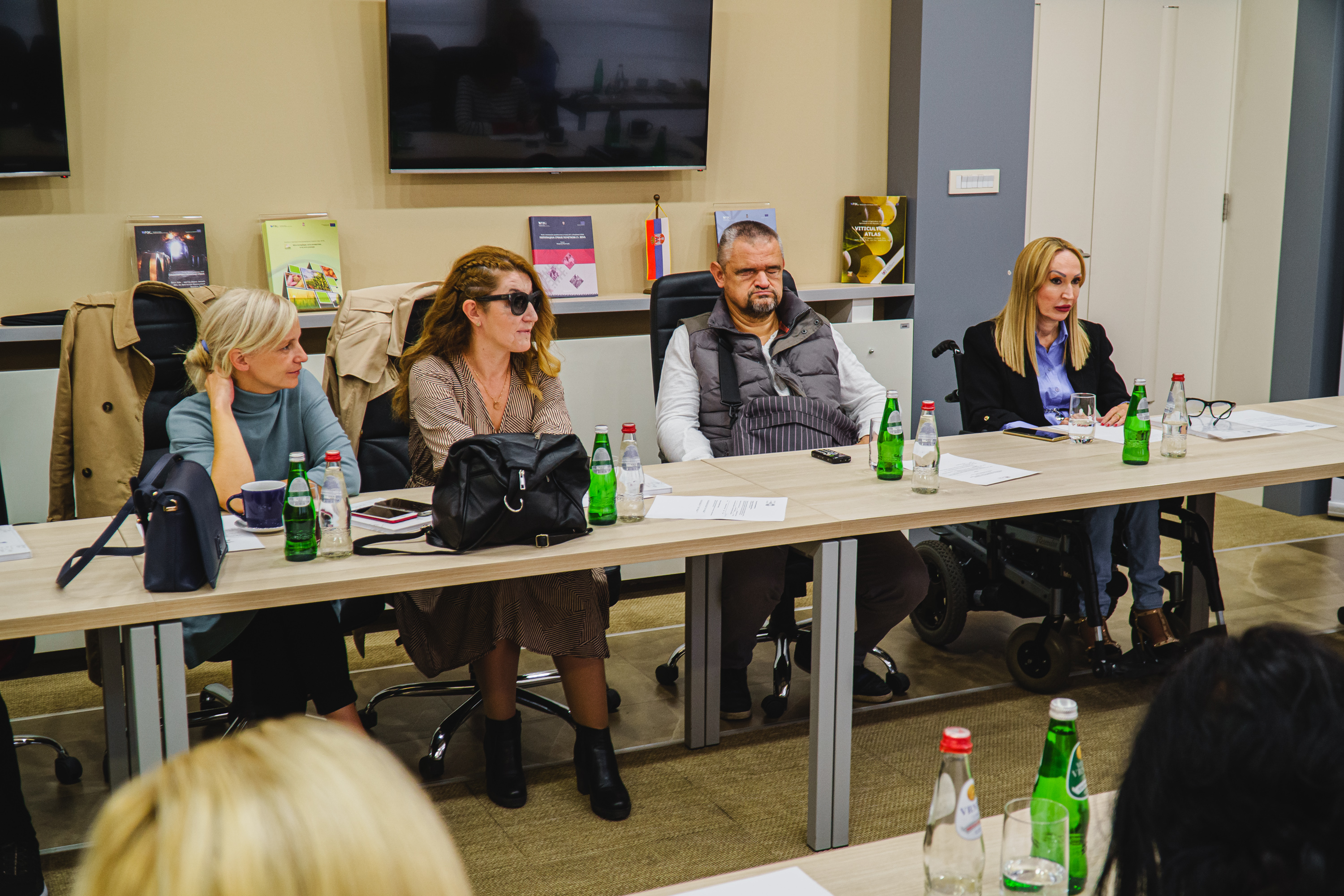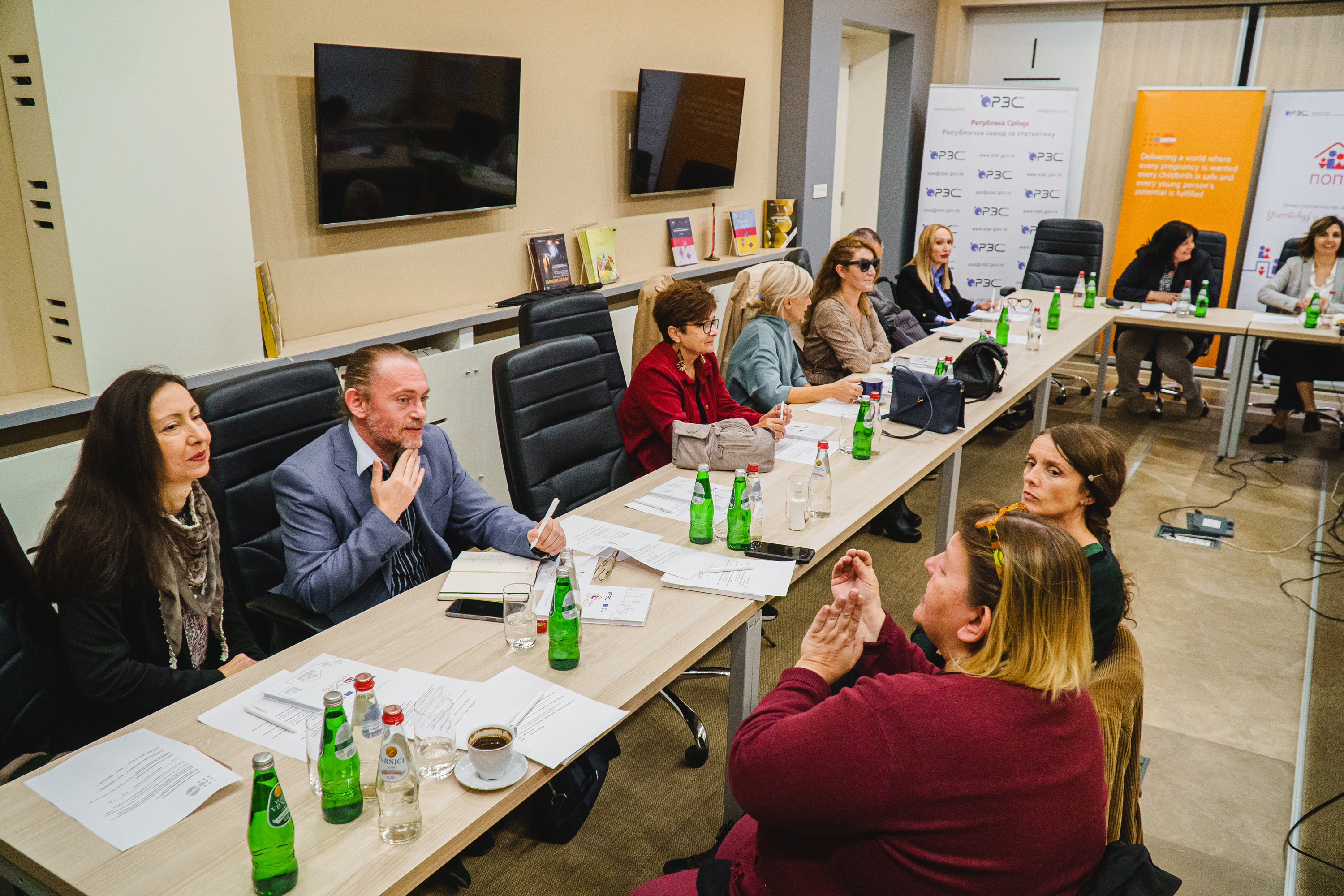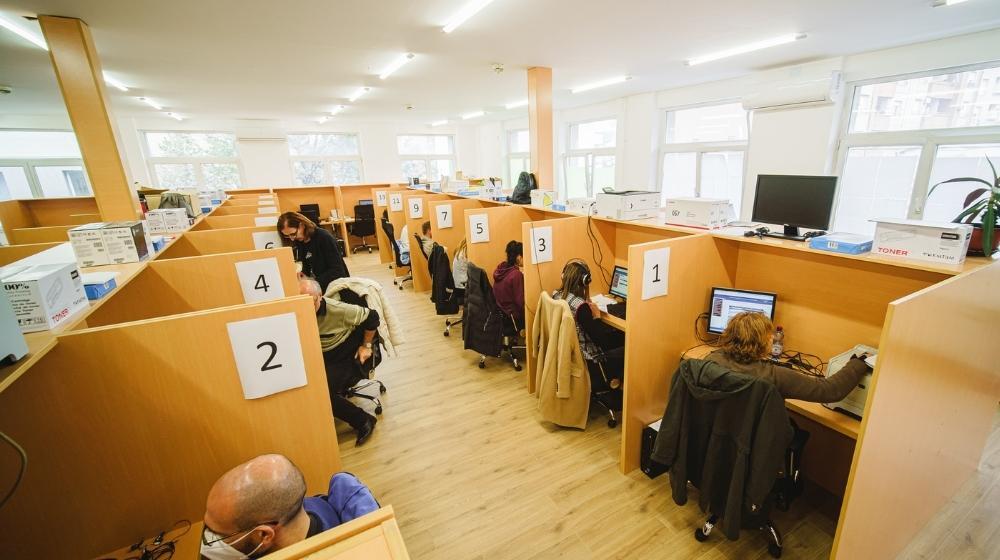“Some of us do not know written Serbian language, and some do not know Serbian sign language. It is important that we are interviewed in the same manner as others.”
United Nations Population Fund (UNFPA) and the Statistical Office of Serbia (SORS) organized a workshop aimed at enabling enumeration of vulnerable groups during the 2022 Population and housing
census in Serbia which got underway this October. A total of 15,000 enumerators will collect census data using a door-to-door interview and, for the first time, electronic questionnaires will replace paper questionnaires.
“This approach will significantly ease and shorten the usual process, making it possible for preliminary results to be known in November 2022,” said Aleksandra Jovanovic, who is a research methodologist at
SORS. The census is financed by the Republic of Serbia and the European Union’s Instrument for Pre-accession Assistance (IPA) 2018 national programme and it is organized and carried out by SORS. The census is expected to finish on 31 October and the data will take between five and six months to process. At the workshop, Ljiljana Djordjevic, the Head of the Population Census Department at SORS explained to participants: representatives from the Ministry of Labour, Employment, Veteran and Social Affairs, the Ministry of Human and Minority Rights and Social Dialogue, and four associations of vulnerable groups: National Organization of Persons with Disabilities, Association of the Blind in Serbia, Association of the Deaf and Hard of Hearing of Serbia Union of Organizations for Helping People with Intellectual Disabilities in Serbia, how the census would be implemented.

Representatives from the National Organization of Persons with Disabilities, Association of the Blind in Serbia, the Association of the Deaf and Hard of Hearing of Serbia , Union of Organizations for Helping People with Intellectual Disabilities in Serbia were among those who took part in the workshop.
To help people take part in the census, SORS set up a national telephone line to offer information and advice.
“The telephone line will be of great support to the persons with disabilities,” said Ivanka Jovanovic, from the National organization of persons with disabilities of Serbia. “The census info centre can arrange the terms of enumeration, so that they could be ready for the occasion and have support (from family, friends, assistant, translator), if necessary.”
In 2011, when the telephone was first established, over 20,000 calls were received in just two weeks. The phone number, 0800 444 005, is free of charge, available daily from 8 a.m. to 8 p.m. and there are
twenty call operators ready to answer questions.

The National Sign Language Interpretation Centre and its local branches are included in the census process.
At the workshop, Marijana Taranovic Todorovic, from the Union of Organizations for Helping People with Intellectual Disabilities in Serbia, emphasized the importance of sensitizing enumerators.
“It is of utmost importance for our members not to be disturbed in any way,” said Ms. Todorovic. “If enumerators notice some of them showing anxiety, or even have an attack, census work should be
postponed by any means.” Branka Brkic and Goran Pecanac, from the Association of the Blind of Serbia, drew attention to the best methods of communication for blind people: "Blind people are perfectly capable of conversation with others. It is important to us that enumerators use direct and not indirect ways of communication".
Mihajlo Gordić, from the Association of the Deaf and Hard of Hearing of Serbia, suggested establishing contact of enumerators with sign language interpreters from municipal associations of the deaf and hard of hearing and with the National Translation Center for Serbian Sign Language. Representatives of the Statistical office accepted this initiative with pleasure.
In addition to the workshop, UNFPA supported a pre-census analysis to help prepare for the census during COVID19. UNFPA also supported the creation of two training tutorials for enumerators and their trainers to prepare them to work during the census period. With UNFPA support, the census questionnaire was translated into additional seven languages of national minorities in Serbia so that all citizens can fill in the census questionnaire in their mother tongue.


